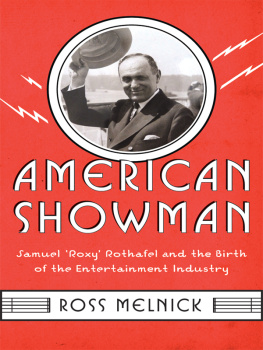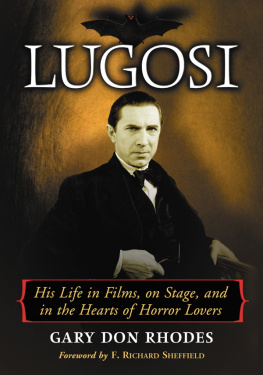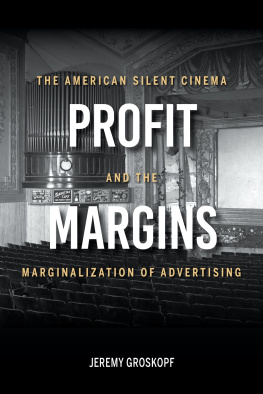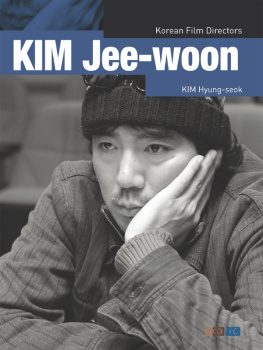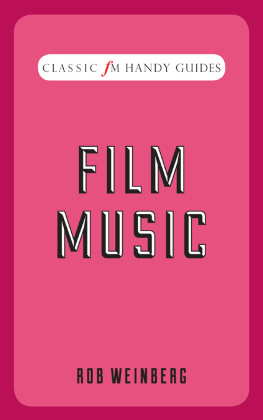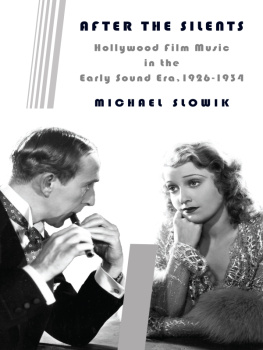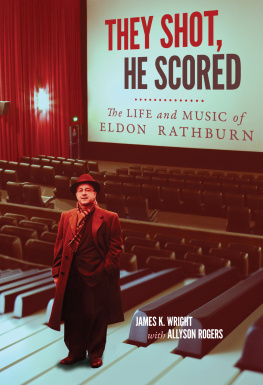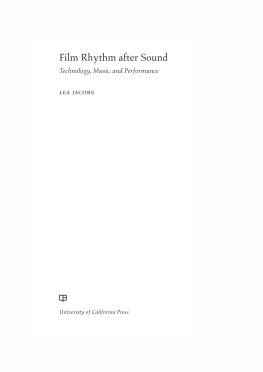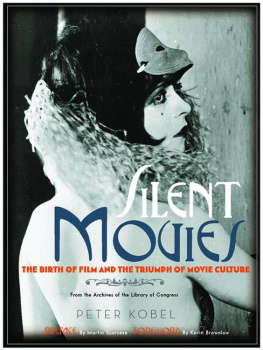Ross Melnick - American Showman: Samuel Roxy Rothafel and the Birth of the Entertainment Industry, 1908-1935
Here you can read online Ross Melnick - American Showman: Samuel Roxy Rothafel and the Birth of the Entertainment Industry, 1908-1935 full text of the book (entire story) in english for free. Download pdf and epub, get meaning, cover and reviews about this ebook. year: 2012, publisher: Columbia University Press, genre: Non-fiction. Description of the work, (preface) as well as reviews are available. Best literature library LitArk.com created for fans of good reading and offers a wide selection of genres:
Romance novel
Science fiction
Adventure
Detective
Science
History
Home and family
Prose
Art
Politics
Computer
Non-fiction
Religion
Business
Children
Humor
Choose a favorite category and find really read worthwhile books. Enjoy immersion in the world of imagination, feel the emotions of the characters or learn something new for yourself, make an fascinating discovery.
- Book:American Showman: Samuel Roxy Rothafel and the Birth of the Entertainment Industry, 1908-1935
- Author:
- Publisher:Columbia University Press
- Genre:
- Year:2012
- Rating:5 / 5
- Favourites:Add to favourites
- Your mark:
American Showman: Samuel Roxy Rothafel and the Birth of the Entertainment Industry, 1908-1935: summary, description and annotation
We offer to read an annotation, description, summary or preface (depends on what the author of the book "American Showman: Samuel Roxy Rothafel and the Birth of the Entertainment Industry, 1908-1935" wrote himself). If you haven't found the necessary information about the book — write in the comments, we will try to find it.
Samuel Roxy Rothafel (18821936) built an influential and prolific career as film exhibitor, stage producer, radio broadcaster, musical arranger, theater manager, war propagandist, and international celebrity. He helped engineer the integration of film, music, and live performance in silent film exhibition; scored early Fox Movietone films such as Sunrise (1927); pioneered the convergence of film, broadcasting, and music publishing and recording in the 1920s; and helped movies and moviegoing become the dominant form of mass entertainment between the world wars.
The first book devoted to Rothafels multifaceted career, American Showman examines his role as the key purveyor of a new film exhibition aesthetic that appropriated legitimate theater, opera, ballet, and classical music to attract multi-class audiences. Roxy scored motion pictures, produced enormous stage shows, managed many of New Yorks most important movie houses, directed and/or edited propaganda films for the American war effort, produced short and feature-length films, exhibited foreign, documentary, independent, and avant-garde motion pictures, and expanded the conception of mainstream, commercial cinema. He was also one of the chief creators of the radio variety program, pioneering radio broadcasting, promotions, and tours.
The producers and promoters of distinct themes and styles, showmen like Roxy profoundly remade the moviegoing experience, turning the deluxe motion picture theater into a venue for exhibiting and producing live and recorded entertainment. Roxys interest in media convergence also reflects a larger moment in which the entertainment industry began to create brands and franchises, exploit them through content release events, and give rise to feature films, soundtracks, broadcasts, live performances, and related consumer products. Regularly cited as one of the twelve most important figures in the film and radio industries, Roxy was instrumental to the development of film exhibition and commercial broadcasting, musical accompaniment, and a new, convergent entertainment industry.
Ross Melnick: author's other books
Who wrote American Showman: Samuel Roxy Rothafel and the Birth of the Entertainment Industry, 1908-1935? Find out the surname, the name of the author of the book and a list of all author's works by series.

